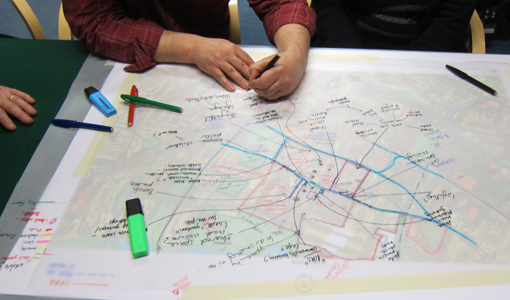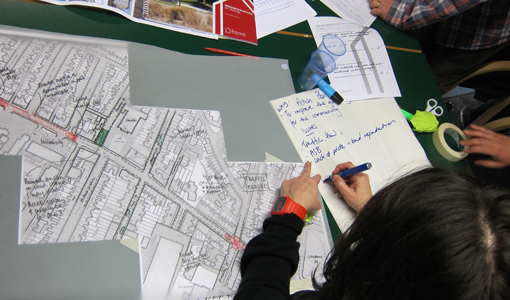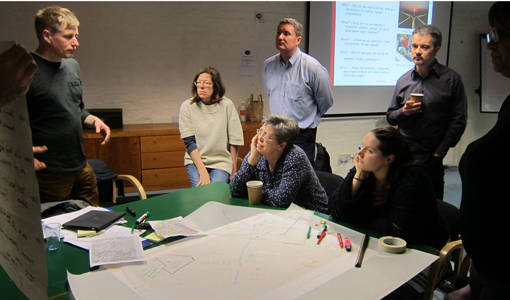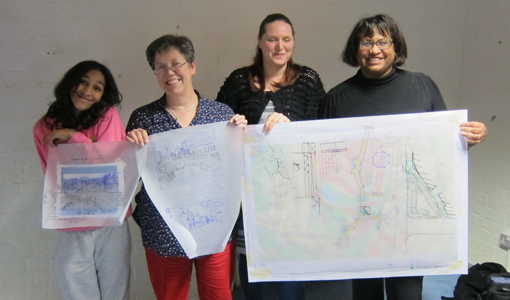Written by:
Neighbourhoods by Design, one of our longest-running design training courses, has undergone a re-vamp of late.
The Design Training course is a whistle-stop introduction to urban design and gives participants the chance to develop their community neighbourhood project. Despite the name, urban design applies to anywhere people live, including urban, suburban, town and rural settings – in essence, urban design is about what makes great places.
We were very excited for the opportunity to use our new material at the Neighbourhoods by Design course, which took place in Birmingham in February.
Three groups attended the course: St Paul’s Residents Association, Moseley Forum and the Jewellery Quarter Neighbourhood Forum. Each group is working on rather different scales and face very different challenges, but all three projects are focused on how to improve their neighbourhood through physical change.
Over the course of two days participants learned about approaches to place-making, how to decode architectural language and drawings, and visited several neighbourhood projects, including a large-scale re-build of an estate and a small food-growing space just up the canal from where we held the training.
Most importantly, learning from this range of approaches was applied to each of their projects. Groups mapped out how their places work and used ideas and learning to consider which change would be appropriate and how these changes could take place.
Here are some of our favourite pictures.





